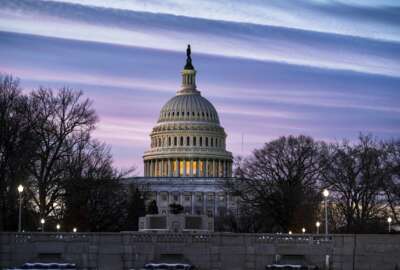Improper payment oversight improves
Obama administration officials told Congress agencies are taking a more aggressive stance than ever in their efforts to cut improper payments. The White House has...
wfedstaff | June 4, 2015 6:32 am
By Jared Serbu
Reporter
Federal News Radio
Obama administration officials told Congress Wednesday that agencies are taking a more aggressive approach than ever to improper payments, and are realizing that they need to share more data in order to effectively tackle the problem.
The White House says $125 billion dollars in improper payments went out to individuals, organizations and contractors in fiscal 2010. The administration is working toward a three-year goal of cutting improper payments by $50 billion by the end of 2012, though Danny Werfel, the controller in the Office of Management and Budget, said there’s no guarantee they’ll make that goal.
Agencies cut their overall improper payment rate from 5.65 percent in 2009 to 5.49 percent in 2010, not as much as administration officials had hoped for. Nonetheless, trend lines for most programs are moving in the right direction, Werfel told the Senate Homeland Security and Governmental Affairs subcommittee on federal financial management.
“The key here is how aggressively federal agencies are taking their responsibilities to drive their error rates down,” Werfel said. “I’ve been involved in improper payments since the Improper Payments Act was first passed in 2002, and I’ve never seen this much concerted activity and proactive steps being taken by agencies to address their errors. I’m optimistic that the error rate will continue to trend down.”
Werfel said when OMB began to look closely at improper payments, it quickly discovered that a dozen government programs were responsible for approximately 90 percent of improper payments. Notably, Medicare and Medicaid, which represent the largest overall dollar amount, and the Agriculture Department’s food stamp program. Werfel said improper payments decreased in both of those large programs last year, while other areas still need work.
“Where we are trending upward and where we have to do a better job is in the Department of Labor’s unemployment insurance program,” he said. “That’s one of the big concerns that we have.”
Administration officials told senators that agencies are taking a more holistic view of improper payments, and realizing that preventing them rather than chasing them down after the fact often requires using data from other agencies to identify organizations and people who shouldn’t be receiving federal checks.
But Richard Gregg, fiscal assistant secretary at the Treasury Department, said getting access to that data has frequently been difficult. He said Congress needs to act to let agencies better share information.
“Agencies in some cases couldn’t get access to databases that would have helped them,” he said. “In other cases where they did have authority, it takes 18 months to two years to go through the computer security matching agreements and the (memoranda of understanding) to get from here to there. I know that from firsthand experience. I think having an organization within Treasury, which we’re working on, to allow agencies to come to one place…would be a very big step to allow us to move forward.”
In some cases however, Treasury would need Congress to make changes to the Privacy Act and the Computer Security Act in order to let agencies see one another’s data, Gregg said. The administration also has asked Congress for $10 million in its 2012 budget request to set up the clearinghouse in Treasury.
The initial component would be a verification portal that would let agencies check information about recipients of federal payments. Treasury wants to eventually expand it to include a centralized data analytics center to flag possible improper payments and model risks.
Werfel said the administration wants to partner with the Recovery Accountability and Transparency Board to take advantage of some of the work the board already done in the area of improper payments. That organization already has set up its own one-stop-shop of sorts—the Recovery Operations Center—to verify information about the recipients of Recovery Act funding, said Calvin Scovel, the board’s vice chairman.
Scovel said his organization is eager to help other agencies. He said the board has just finished a pilot project with the Centers for Medicare and Medicaid Services, using its own operations center to zero-in on healthcare providers who were at high risk for getting improper payments.
“I can now tell you that operations center data confirmed that several providers were banned from doing business with the federal government at the time they were enrolled in the program,” he said. “Our analysts also identified a pattern of Medicare fraudsters using legitimate doctors’ medical identification numbers in states far removed from where those doctors had their true practices.”
Administration officials say they have also been working with state governments to find other ways to cut improper payments. Those talks led to four pilot programs announced this week by OMB Director Jack Lew.
- States will test a shared health care provider enrollment system in hopes of doing a better job of detecting fraud in Medicaid.
- The Labor department will try to cut overpayments in unemployment benefits by letting states get quicker notification when a beneficiary finds work.
- USDA will help states share benefits information to cut down on duplicate payments from the department’s food stamp program.
- Treasury will help states collect some of their outstanding debts that include federal dollars.
(Copyright 2011 by FederalNewsRadio.com. All Rights Reserved.)
Copyright © 2025 Federal News Network. All rights reserved. This website is not intended for users located within the European Economic Area.





